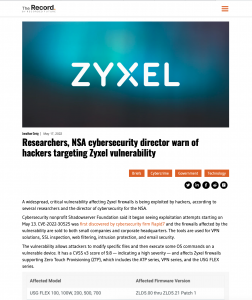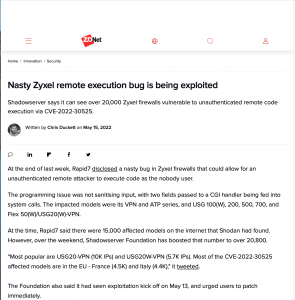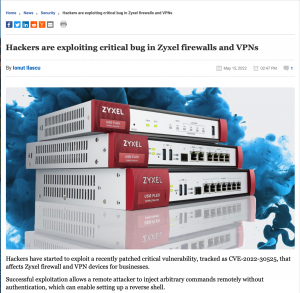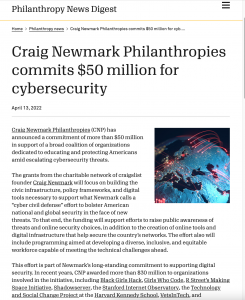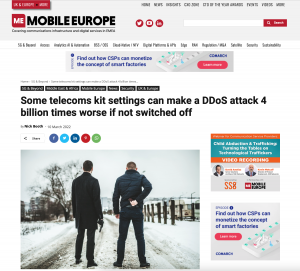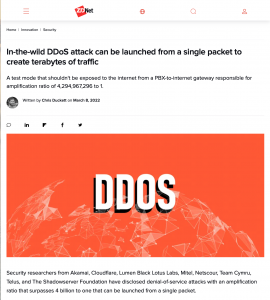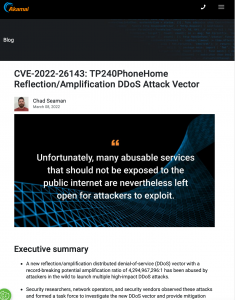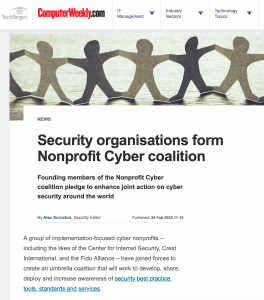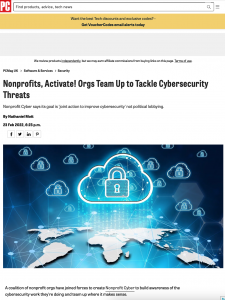Researchers, NSA cybersecurity director warn of hackers targeting Zyxel vulnerability
A widespread, critical vulnerability affecting Zyxel firewalls is being exploited by hackers, according to several researchers and the director of cybersecurity for the NSA. Cybersecurity nonprofit Shadowserver Foundation said it began seeing exploitation attempts starting on May 13. CVE-2022-30525 was first discovered by cybersecurity firm Rapid7 and the firewalls affected by the vulnerability are sold to both small companies and corporate headquarters. The tools are used for VPN solutions, SSL inspection, web filtering, intrusion protection, and email security. The vulnerability allows attackers to modify specific files and then execute some OS commands on a vulnerable device. It has a CVSS v3 score of 9.8 — indicating a high severity — and affects Zyxel firewalls supporting Zero Touch Provisioning (ZTP), which includes the ATP series, VPN series, and the USG FLEX series.


